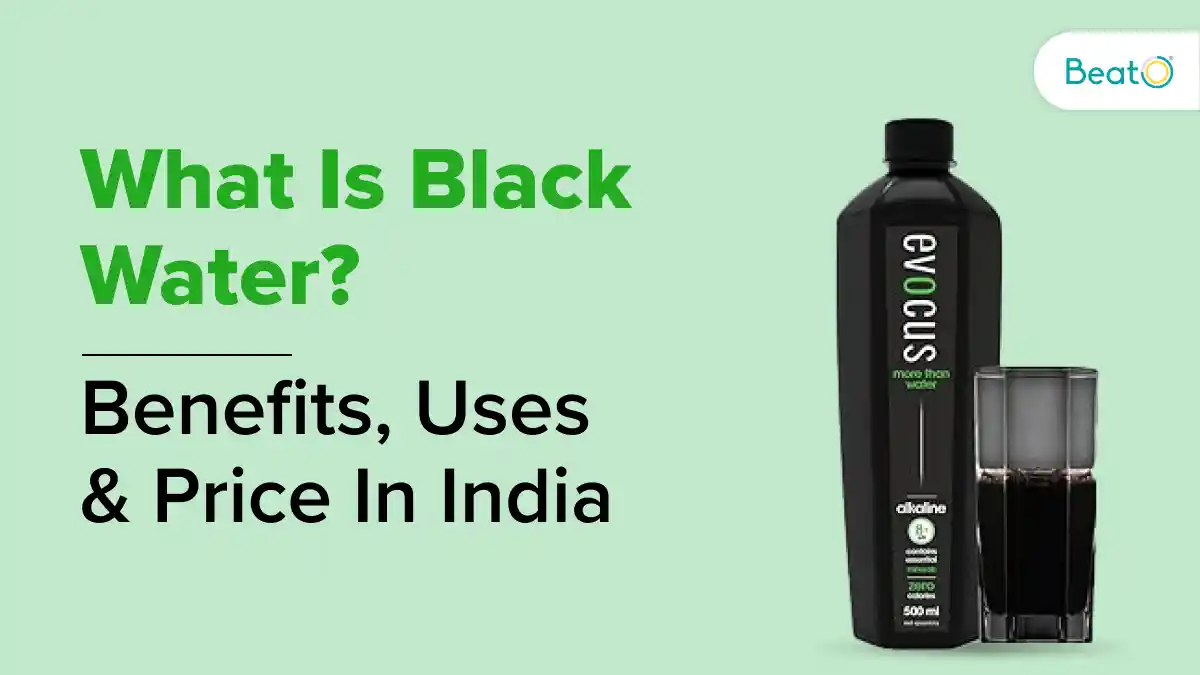Black Water in India: A Niche Elixir Yet to Quench Mainstream Thirst

May 21, 2025
A few years ago, a curious new entrant appeared in the Indian beverage market: black water. With its striking obsidian hue and promises of enhanced hydration and a myriad of health benefits, this alkaline water infused with fulvic acid and other minerals quickly garnered attention, particularly among celebrities and fitness enthusiasts. Brands like Evocus, BLK, Booster Water, and Vaidya Rishi have been trying to create a space for themselves in a market traditionally dominated by conventional bottled water. However, despite the initial buzz and a growing wellness-conscious segment, black water is yet to become a household staple in India. Why is this premium hydration option still treading cautiously in the Indian market?
Black water, also known as alkaline black water, derives its distinctive color from fulvic acid, a natural compound found in humus, which is rich in minerals and electrolytes. Proponents claim it offers superior hydration, helps neutralize body acidity, boosts metabolism, and provides antioxidant benefits. These assertions have certainly piqued the interest of a health-aware demographic, leading to a discernible, albeit niche, market growth.
The Indian functional beverage market is on an upward trajectory, with consumers increasingly seeking products that go beyond basic nutrition. Black water fits neatly into this trend. Companies like AV Organics LLP, the parent company of Evocus, India's first black alkaline water brand, have been actively working to build this category. They've employed strategies like celebrity sightings with the product, social media marketing, and positioning it as a premium wellness drink. Other brands, including international names and newer domestic players like Darkk, Blaq Water, Veen, and Alkaline Boo, are also vying for a share of this nascent market, primarily through online platforms and select premium retail outlets in metropolitan cities.
Despite these efforts, several factors contribute to the lukewarm reception from the broader Indian populace:
Prohibitive Pricing: This is perhaps the most significant barrier. A bottle of black water can cost anywhere from ₹100 to ₹300 or even more, a stark contrast to regular bottled water, which is available for a fraction of that price (around ₹20-₹40). For the average Indian consumer, this price difference makes black water a luxury rather than a daily necessity.
Lack of Widespread Scientific Endorsement and Consumer Skepticism: While brands highlight the benefits of fulvic acid and alkalinity, the scientific evidence supporting these claims specifically for black water is still not robust or widely disseminated. Indian consumers, while increasingly health-conscious, are also often wary of trends perceived as fads, especially when they come with a premium price tag and lack strong, independent scientific validation. Many remain unconvinced about the tangible benefits over regular water or traditional wellness practices.
Limited Awareness and Understanding: Beyond the metros and a niche audience of wellness aficionados, awareness about black water, its ingredients, and its purported benefits remains relatively low. Educating a diverse and vast consumer base like India's about a novel product category requires significant and sustained marketing investment.
Cultural and Traditional Preferences: India has a rich heritage of traditional wellness drinks and practices, such as herbal concoctions, coconut water, and lassi, which are often perceived as natural, affordable, and effective. These established preferences can make it challenging for a new, modern, and expensive product to gain widespread acceptance quickly.
Taste and Appearance: While many brands claim black water is tasteless or has a slight mineral tang, the unconventional black color itself can be a psychological hurdle for some consumers accustomed to water being clear and transparent.
So, while the black water market in India is showing signs of having found favor with a select group, its journey to mainstream acceptance is still navigating significant headwinds. For brands like Evocus and its competitors, the path forward likely involves not only persistent marketing and wider distribution but also a greater emphasis on consumer education, potentially more accessible pricing strategies, and more robust, easily understandable scientific backing to convince a price-sensitive and discerning Indian consumer base that black water is more than just a passing trend. Until then, it remains an intriguing, dark elixir bubbling primarily in the premium and wellness-focused corners of the Indian market.
Tags:





